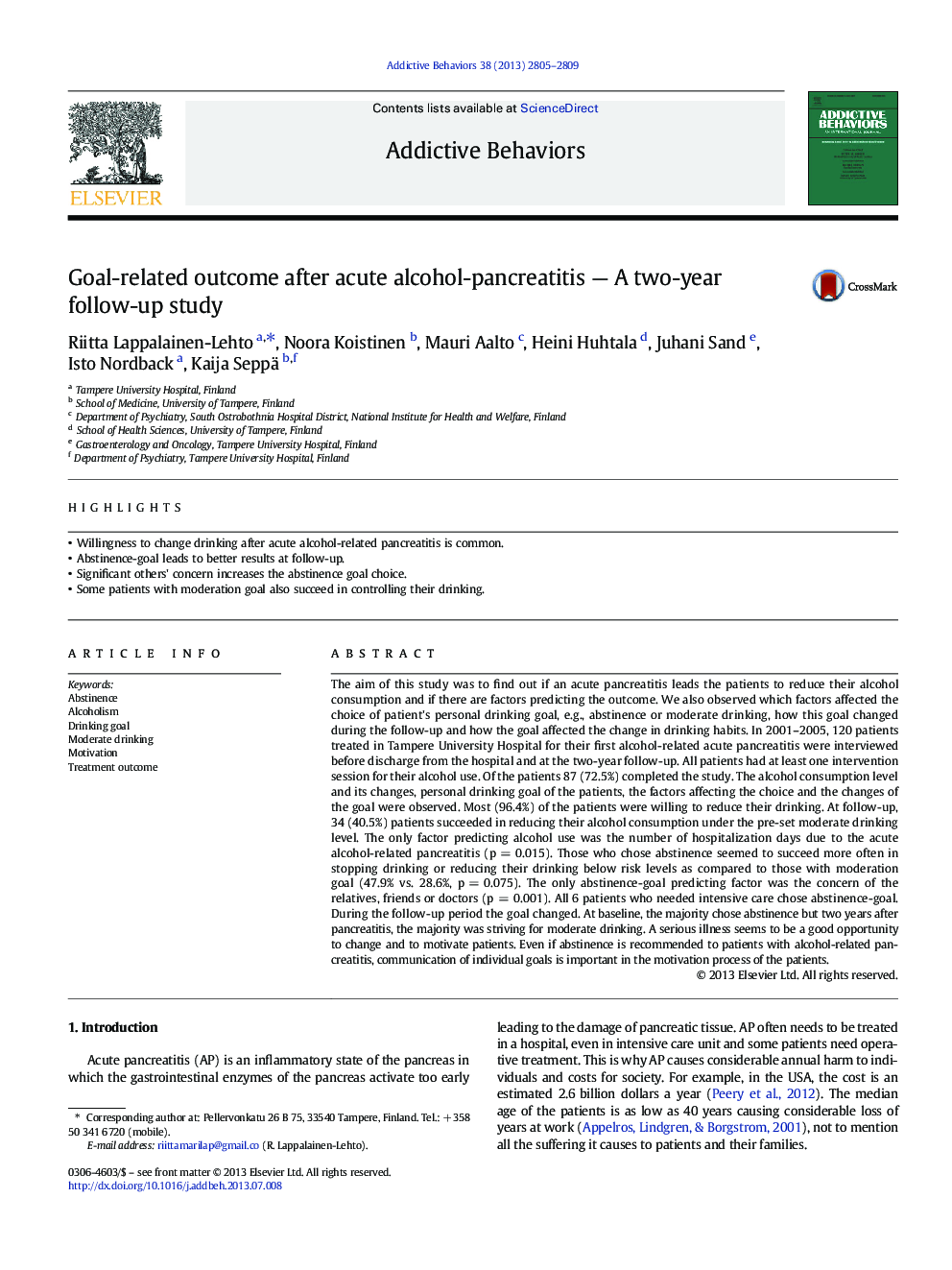| کد مقاله | کد نشریه | سال انتشار | مقاله انگلیسی | نسخه تمام متن |
|---|---|---|---|---|
| 898837 | 915345 | 2013 | 5 صفحه PDF | دانلود رایگان |

• Willingness to change drinking after acute alcohol-related pancreatitis is common.
• Abstinence-goal leads to better results at follow-up.
• Significant others' concern increases the abstinence goal choice.
• Some patients with moderation goal also succeed in controlling their drinking.
The aim of this study was to find out if an acute pancreatitis leads the patients to reduce their alcohol consumption and if there are factors predicting the outcome. We also observed which factors affected the choice of patient's personal drinking goal, e.g., abstinence or moderate drinking, how this goal changed during the follow-up and how the goal affected the change in drinking habits. In 2001–2005, 120 patients treated in Tampere University Hospital for their first alcohol-related acute pancreatitis were interviewed before discharge from the hospital and at the two-year follow-up. All patients had at least one intervention session for their alcohol use. Of the patients 87 (72.5%) completed the study. The alcohol consumption level and its changes, personal drinking goal of the patients, the factors affecting the choice and the changes of the goal were observed. Most (96.4%) of the patients were willing to reduce their drinking. At follow-up, 34 (40.5%) patients succeeded in reducing their alcohol consumption under the pre-set moderate drinking level. The only factor predicting alcohol use was the number of hospitalization days due to the acute alcohol-related pancreatitis (p = 0.015). Those who chose abstinence seemed to succeed more often in stopping drinking or reducing their drinking below risk levels as compared to those with moderation goal (47.9% vs. 28.6%, p = 0.075). The only abstinence-goal predicting factor was the concern of the relatives, friends or doctors (p = 0.001). All 6 patients who needed intensive care chose abstinence-goal. During the follow-up period the goal changed. At baseline, the majority chose abstinence but two years after pancreatitis, the majority was striving for moderate drinking. A serious illness seems to be a good opportunity to change and to motivate patients. Even if abstinence is recommended to patients with alcohol-related pancreatitis, communication of individual goals is important in the motivation process of the patients.
Journal: Addictive Behaviors - Volume 38, Issue 12, December 2013, Pages 2805–2809